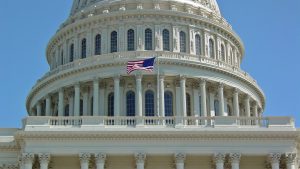The limited media attention that diasporic communities from developing countries attract tends to focus on the impacts they can have back home, such as through sending remittances and investment.
Their ongoing vulnerability to intimidation by authoritarian governments of their countries of origin has often been ignored. Yet the extreme sensitivity of authoritarians to online dissent from abroad shows that diasporas can punch beyond their weight in political terms.
They can serve as sources of political funding for opposition parties, and members of the diasporas often have access to independent courts to pursue claims against authoritarian regimes. Social media use means that they can potentially reach dispersed though significant audiences.
Proposed legislation in the U.S. seeks to defend their freedom of expression by deterring intimidation of diaspora members by foreign governments. The Transnational Repression Policy Act was introduced in March by a bipartisan group of senators made up of Jeff Merkley (D-OR), Marco Rubio (R-FL), Ben Cardin (D-MD), and Bill Hagerty (R-TN).
The bill would task the U.S. intelligence community with identifying perpetrators of transnational repression and their methods. There would be a dedicated tip line for transnational repression reporting with the departments of Homeland Security and Justice, and outreach efforts to at-risk communities. The U.S. Secretary of State would produce annual reports on transnational repression, and the president would have powers to impose sanctions on those found to be involved.
China is high on the agenda for the lawmakers. The country’s intolerance of protestors abroad was highlighted in the United Kingdom in October, when a Hong Kong pro-democracy protester was pulled into the grounds of the Chinese consulate in Manchester and beaten up. The British government in December demanded the removal of diplomatic immunity for six officials alleged to have been involved to allow police questioning. China responded by withdrawing the six officials, including a consul general, from the country.
In the U.S., Rubio points to the Chinese government intimidation of exiles from the Uyghur, Tibetan, Falun Gong, Christian, and Hong Kong communities. China’s extraterritorial reach, according to research from Audrye Wong at the University of Southern California, “threatens to adversely affect the healthy functioning of democratic political systems.” Chinese tactics include surveillance, direct threats from government officials, the targeting of family members back home, forced returns or disappearances, and assassinations, the research finds.
Cambodian Prime Minister Hun Sen has become a close ally of Beijing, and opponents of his regime argue that his government uses many of the same tactics. The proposed legislation shows that “the world is catching up with the reality of transnational intimidation,” said Mu Sochua, vice president of the banned Cambodia National Rescue Party (CNRP). “The era when dictators could threaten their nationals abroad with impunity is coming to an end.” Mu Sochua, exiled from Cambodia and based now in the U.S., has had her Cambodian passport revoked, which prevented her from answering charges raised against her at a mass trial conducted in her absence in Phnom Penh in 2022.
Another recent Cambodian case is that of Sorn Dara, a dissident seeking asylum in France who regularly criticizes Hun Sen in videos on his Facebook page. Sorn Dara fled Cambodia in 2017. His father is a military officer, and his sister-in-law works at the Ministry of Interior. Hun Sen in April threatened to sack Sorn Dara’s parents unless the criticism stops.
Cambodia’s diaspora is scattered around most of the world’s major continents. A scenario in which none of its members would want to publicly criticize the government online is hard to imagine. But Sorn Dara’s regular audience of a few thousand Facebook viewers is enough to raise alarm bells in Phnom Penh.
“Hun Sen is openly intimidating Sorn Dara,” said Mu Sochua. She says that videos in which Sorn Dara’s father appears to disown him were made under the “inhumane” duress of the prime minister. Hun Sen “has no concept of individual conscience and freedom of expression,” she added.
The U.S. bill also calls for study of the creation of a United Nations special rapporteur for transnational repression. Special rapporteurs are independent experts appointed by the U.N. to report on human rights issues, usually with a national or a thematic focus. Diasporic populations, especially those who live in democratic countries, currently represent something of a gap in the system.
The creation of a special rapporteur for transnational repression “would send a powerful signal to authoritarians who think they can intimidate their people living abroad,” Mu Sochua said. “It would help to protect people who at the moment are often soft targets.”
“The full powers of this legislation must be used to punish governments who intimidate their nationals in democratic countries on a daily basis,” she added. “The Cambodian diaspora no longer wants to live in fear.”

































